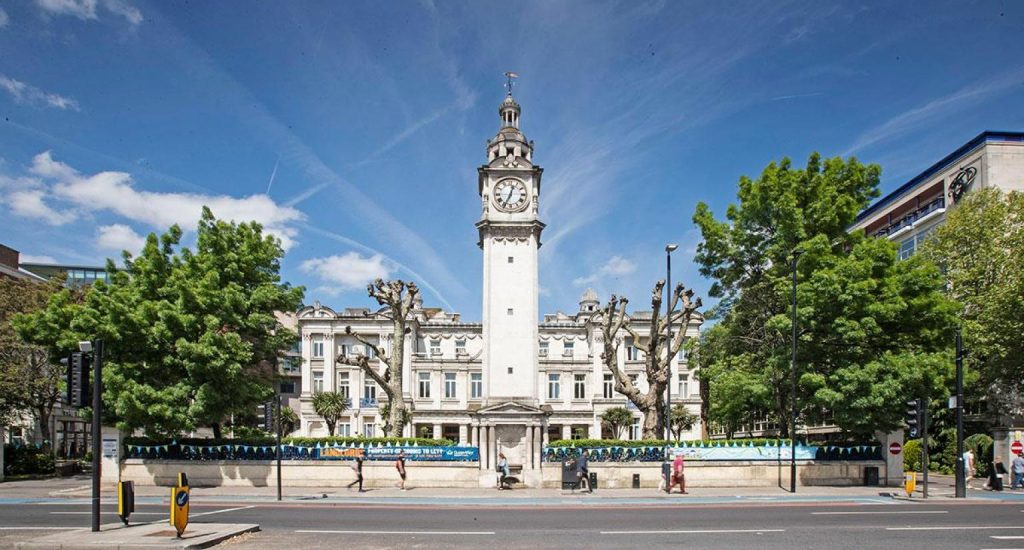
What you’ll study:
Share your details in order to receive information about this high quality online masters course.
Format: part-time and online (distance learning)
Tuition fees: £13,295 (MA); £8,850 (PGDip); £4,450 (PGCert). Payment by instalment and funding options available.
Course duration: two years (MA); 15 months (PGDip); one year (PGCert)
Annual start dates: May, September
Next start date: 18 September 2023
Application deadline: 15 September 2023 (we recommend applying as early as possible to secure your place)
Time commitment: approximately 20 hours per week
Establishing yourself in the field of international relations demands the ability to think, speak, and write critically about international issues, including topics such as:
With this online, part-time Master’s programme, you can look forward to developing the theoretical understanding and analytical skills needed to navigate these with confidence and consideration.
The course offers challenging and thought-provoking modules to help you formulate your answers, and a lively, intelligent group of students and academics with which to debate and exchange ideas.
This module is designed to provide you with a command of key concepts and theoretical traditions in international relations and an understanding of their relevance to contemporary themes in world politics.
We will evaluate political developments and statements and analyse critical themes in world politics. Through a close reading of advanced theoretical texts, you will expand your conceptual and theoretical knowledge and begin to think critically about competing interpretations of events, and longer term developments in international relations.
Online discussions will encourage you to compare and critically evaluate theoretical knowledge and to express your arguments effectively.
Violent conflict and the use of force remain salient issues in contemporary international relations. While some have theorised that the advent of globalisation and spread of liberal democracy would make the use of force and violent conflict less relevant to the world, war and conflict have remained an integral part of the international system, forming an obstacle to providing stability and security for many states.
In this module, we will examine how force is used by states and other actors, and how it is managed in world politics. Together, we will survey a variety of perspectives on the causes of war and peace in order to better examine the roots of violent conflicts and security problems in the present day.
A major theme of the module looks at war in a global context, not only in terms of integrating contemporary concerns with globalisation, but also by looking at interconnections between north and south, and war and society. We will also explore the responses of the international community to violent conflict, looking broadly at the contested notion of ‘Just War’, international law, and the role of the United Nations.
Overall, the module will provide you with a broad perspective on the place of armed force in contemporary international relations.
In this module, we will consider the principal forms in which US foreign policy has been practised and interpreted since the foundation of the Republic. Amongst these are American Exceptionalism and Anti-Americanism, ‘spheres of influence’, liberal interventionism and protectionist isolationism, Cold War containment, the ‘War on Terror’ following 9/11, and the strains on uni-polarity in the early 21st century.
Case studies linked to these themes will allow us to consider the role of Native Americans and immigration, the war of 1898, gunboat diplomacy in the Caribbean, the ideas of Woodrow Wilson, the Vietnam War, the consequences of the 9/11 attacks, and the challenges posed by China.
This module provides you with a detailed examination and critique of theories of globalisation, an assessment of contemporary globalising processes, and how these particularly influence the developing world.
We will examine the analysis of contemporary manifestations of ‘globalisation’, including neo-liberalism, US hegemony and contemporary imperialism, capital flows, global commodity chains, state-market relations, patterns of global inequality, international institutions, and questions of cultural homogenisation/imperialism.
The module also looks at the ways in which ‘globalisation’ is resisted, focusing on the rise of transnational social movements and NGOs, and the politics of ‘anti-globalisation’, and how this relates to an ostensibly ‘post-development’ era.
In addressing these issues, the module concludes by asking the most important question: how do we think of ‘development’ in an era of ‘globalisation’, US hegemony, neo-liberalism and imperialism?
Learning Outcomes :
Benefits of learning online with us

• No visas or moving costs
• Access course from anywhere in the world
• Spend approx. 20-25 hours studying each week
• All course materials are available on demand
• Revise on the days and times that suit you best
• Course modules broken down into weekly
segments
• Fit studies around work, family and social life
• Support with non-academic queries from a
student adviser team

How could Queen Mary’s International Relations MA (Online) benefit my career?
“You will gain substantive knowledge about the history of the international system and how it is developing so that you have a view on the broader context in which companies, non-governmental organisations, charities, and so on operate in the world.”
-Jef Huysmans, International Relations MA Programme Director.
Queen Mary University of London is a member of the Russell Group of leading universities. Studying online with us gives you access to the highest quality of teaching and research, empowering you to achieve lifelong career success and make a global impact.
This course doesn’t train you for a specific job, but it gives you knowledge and transferrable skills that you can apply to a variety of roles in international relations.
You will get a broad understanding of international relations and how people in the international community analyse the world. For instance, how do changes in the international global economy impact on government policies? This knowledge will help you operate in various international settings.
You will gain the ability to listen to or read complicated material and pick out the core arguments quickly. You will also learn how to communicate your ideas and arguments effectively, both verbally and in writing. These are skills many employers value.
As an online student, you’ll have access to QM Careers and Enterprise throughout your studies and for up to two years after you graduate. The service offers information and guidance on a wide range of topics, from choosing a career to finding work experience and starting your own business.
Graduates from our programmes progress to diverse positions of responsibility in government, non-governmental organisations (NGOs), international organisations and the not-for-profit sector as well as broader roles in the media and finance sector. They also go on to careers in academia and our programmes help students develop the required research skills.
Examples of roles graduates of our online MA have gone on to work in include:

Benefits of learning online with us
The usual entry requirement for the International Relations MA (Online) is for a 2.1 honours degree or international equivalent in a relevant subject, such as politics, international relations, history or economics.
However, if you have a 2nd class degree and at least three years’ relevant work experience, we may also consider your application.
If your first language is not English, you should also have one of the following:
If you’re unsure whether you’re eligible to apply, please get in touch with our course adviser team for advice.
Share your details in order to receive information about this high quality online masters course.

Fuel your ambition and achieve a big increase in your earning potential by studying one of our high quality flexible master programs developed by some of the top British Universities.
® London House Academy 2023 | Powered by diho.mx